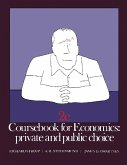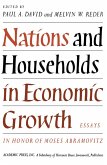Economics: Private and Public Choice, Second Edition deals with modern Keynesian theory, monetarist theory, collective decision-making, and the traditional demand-side of macroeconomics. The book explains economic principles, such as taxation, government expenditure, public choice theory, rate of employment, aggregate supply, fiscal policy, low productivity, inflation, and adaptive expectation hypothesis. The text also covers microeconomics, particularly, capital interest, profits, energy market, and the indifference curve analysis. The book discusses inequality, income mobility, and the battle against poverty where a market system can encourage the careful use of resources, high productivity, and freedom of choice for individuals to bear the costs and reap the benefits. The text points out that income redistribution can result in some conflicts. As an example, the book analyzes income inequality in the United Sates, income inequality in other countries, as well as its causes. The book also describes the characteristics of less developed countries as having low per capita income, dominance of agriculture-household sector, rapid population growth, income that is more unequally distributed, including inadequate health care and education. The book is suitable for economists, sociologists, and policy makers involved in national economic development.
Dieser Download kann aus rechtlichen Gründen nur mit Rechnungsadresse in A, B, BG, CY, CZ, D, DK, EW, E, FIN, F, GR, HR, H, IRL, I, LT, L, LR, M, NL, PL, P, R, S, SLO, SK ausgeliefert werden.









